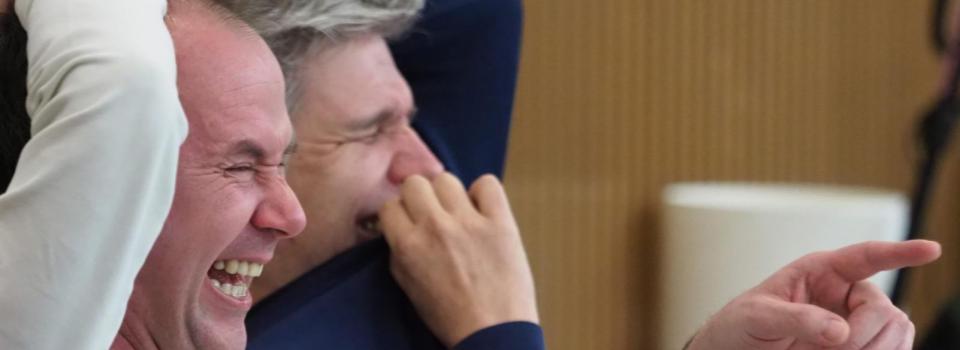
OUR GREAT UNDERSTANDING
Jean Lambert-wild & Lorenzo Malaguerra
Shizuoka, January 2019
In the collection Pillar of Fire and Other Plays for Today, Tomorrow, and Beyond Tomorrow, Ray Bradbury tells the story of an old man whom people think is dangerous because he remembers things from before: sweets, coffee, fruits. The theatre of today is not dissimilar to this old man whom people want to get rid of because he carries within himself a memory of how things were and sometimes too, a memory of simple pleasures. But theatre is as stubborn and obstinate as a mule.
Theatre is remembrance. It is a way of remembering the great authors who built it: Beckett, Eschylus, Molière, Koltès, Shakespeare… A way of remembering trees, birds, volcanoes, the horizons of our childhoods. A way of remembering sounds, words, emotions, stories from the beginning of time. A way too of remembering oddities, madcap inventions, cabinets of curiosity, ghosts, the dead and the living. And because it is forced to die with every performance, theatre tells the story of the present.
The kind of theatre we make takes from all this. It drinks from every spring, takes inspiration from what we know: our histories, our childhoods, the books we have read. It is also hungry for what we don’t know: the uncanny, buried treasures, short-lived inventions, our collaborators from all over the world.
The theatre we make has grown from our great understanding .
We share a love of poetry, and every narrative form can be our own. We both cherish beauty.
We feel free in the way we practice our art, and we like to work joyously.
We believe in the craftsmanship of theatre, expressed through all the skills that make it possible. We use every technology, old and new, at the service of the stage, as long as it makes sense for the project we are working on.
We reject ideologies, dogmas and great liturgical dreams, because for us, freedom and the work’s artistic dimension take centre stage.
We make theatre that is emotional, which doesn’t shy away from laughter or tears and tries its hardest to meet its audience.
We don’t have a trademark and we don’t belong to any aesthetic movement. Our theatre is made of possibilities: daydreaming at the bottom of a swimming-pool, throwing oneself against a wall and going through it, giving bees a human voice, embodying Richard III or performing Waiting for Godotand Roberto Zucco.
We love the French language, but for us it is not exclusive. We believe that poetry is universal.
We champion the idea that a piece of theatre lives through tradition, innovation, and the way it is handed over and communicated. This is simply inherent to theatre as a form.
From experience, we know that there are as many ways of spelling the words actor and actress than there are actors and actresses to spell it, and that because of this, we have to ensure that actor training is accessible to all and fight against any form of exclusive inherited privilege.
One day, someone who had been watching us at work said that one of us was the right part of the brain, and the other the left. Guessing which one is which is pointless, what matters is that, together, we make a brain.
As for the strength of our passion for theatre, it is clear that our great understanding multiplies it by two, at least.
